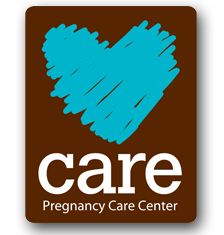Understanding the facts about medical abortion is important to safeguarding your health. If you’re considering this type of abortion, be sure about your pregnancy details to know where your pregnancy stands and if you’re eligible.
Known as the abortion pill, medical abortion consists of two drugs that terminate an existing pregnancy: mifepristone and misoprostol. Keep reading to learn about eligibility, risks, and what to expect with this option. Note that the Pregnancy Care Center does not perform or refer for abortion. This information is for educational purposes so that you can make an informed decision.
1: Incomplete abortion is one of the risks
Incomplete abortion is a risk of medical abortion that occurs when parts of the terminated pregnancy remain in the uterus. This complication requires another procedure to remove the rest of the pregnancy.
According to the Mayo Clinic, possible physical risks of a medical abortion include the following:
- An ongoing pregnancy if the procedure doesn’t work
- Heavy and prolonged bleeding
- Infection
- Fever
- Digestive symptoms such as upset stomach
Common side effects of medical abortion include vaginal bleeding and abdominal cramping. You could also experience nausea, vomiting, fever, chills, and diarrhea.
2: It’s not recommended for women past 10 weeks
It’s vital to point out that medical abortion is only approved by the FDA for women through 10 weeks of pregnancy. An ultrasound is needed to confirm this pregnancy detail.
An ultrasound can also alert you to potential pregnancy complications that may disqualify you for abortion, like ectopic pregnancy or miscarriage. These complications require medical intervention.
3: Not all women are eligible for this type of abortion
The Mayo Clinic shares that not all women are eligible for a medical abortion. If any of the following situations apply to you, you aren’t eligible for a medical abortion:
- Are too far along in your pregnancy. You shouldn’t attempt a medical abortion if you’ve been pregnant for more than 11 weeks. A pregnancy is dated from the first day of your last menstrual period.
- Have an intrauterine device (IUD) currently in place.
- Have a suspected pregnancy outside of the uterus. This is called ectopic pregnancy.
- Have certain medical conditions. These include anemia; some bleeding disorders; chronic adrenal failure; certain heart or blood vessel diseases; severe liver, kidney or lung disease; or an uncontrolled seizure disorder.
- Take a blood thinner or certain steroid medicines.
- Can’t reach a healthcare professional by phone or online, or don’t have access to emergency care.
- Have an allergy to the medicine used in a medical abortion.
Learn Your Pregnancy Details
Confirm your pregnancy details and options with free and confidential pregnancy testing, a possible ultrasound referral, and options information.
You deserve answers before making a final pregnancy decision. We’re here to inform you about all your options. Schedule a free pregnancy appointment today to get answers.
We offer accurate information about all your pregnancy options; however, we do not offer or refer for abortion services. The information presented on this website is intended for general education purposes only and should not be relied upon as a substitute for professional and/or medical advice.
All abortion information sourced in this blog is based on accurate information at the time of writing.
